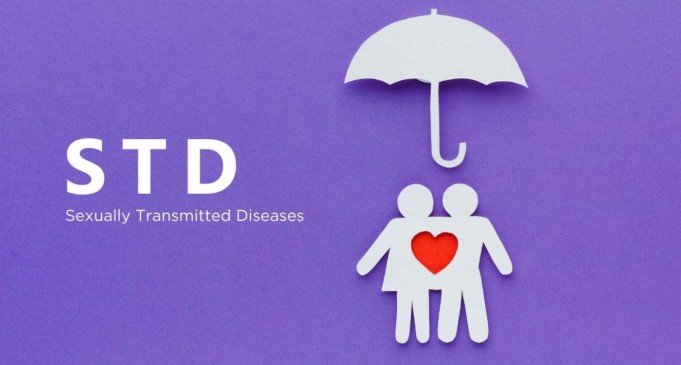Sexually transmitted infections (STIs) are widespread, and many of those with a disease don’t know they have it. One of the reasons someone does not know is that there are no signs of certain conditions.
You will live for years with Sexually Transmitted Infections without understanding it. They can still be dangerous, even though Sexually Transmitted Infections don’t have noticeable symptoms.
Asymptomatic Sexually Transmitted Infections, untreated, can:
- Heighten the risk of infertility
- Lead to certain types of cancer
- Be transmitted to sexual partners
- Cause health complications to an unborn baby
- Make a person more susceptible to contracting HIV
Sexually Transmitted Infections Symptoms
Sexually Transmitted Infections catch many people off guard. It’s necessary to protect your sexual health, however. Be mindful of any physical alterations, no matter how slight they might appear
To recognize them, look for medical support. Consult with your doctor if you have any Sexually Transmitted Infections symptoms. They will treat your condition or send you medicine to alleviate the symptoms or concerns that you might have.
They will also advise you on how to reduce the potential risk of contracting Sexually Transmitted Infections. Symptoms of Sexually Transmitted Infections can vary from mild to severe. Some of the most prominent symptoms of STIs include:
Changes in urination
A symptom of many conditions can be burning or discomfort during urination. It may, however, also occur due to an infection of the urinary tract or kidney stones. Therefore, if you have pain or other symptoms during urination, it’s important to get tested.
During urination, Sexually Transmitted Infections that may cause burning or pain include:
- Chlamydia
- Gonorrhoea
- Trichomoniasis
- Genital herpes
If you find any changes in your urine, speak to your doctor. Also, to search for the presence of blood, you should remember the colour of your urine.
Unusual penis discharge
Typically, discharge from the penis is a sign of Sexually Transmitted Infections or some form of infection or disease. It is important to inform your doctor of this symptom as soon as possible for a diagnosis.
Sexually Transmitted Infections which can cause discharge include:
- Chlamydia
- Gonorrhoea
- Trichomoniasis
This diagnosis can be treated with antibiotics. It’s necessary, however, to take your medicine exactly as prescribed. If your symptoms don’t change, or if they come back, you can see your doctor.
By having sex with your partner, you could have contacted the Sexually Transmitted Infections again, especially if they were not treated at the same time as you were. A particular antibiotic or medication might also be appropriate for you.
Abnormal vaginal discharge or bleeding
A symptom of a variety of conditions may be excessive vaginal discharge. Not all of these are transmitted sexually. Infections associated with sex, such as bacterial vaginosis, may also cause discharge.
Speak to your doctor if you have alterations in your vaginal discharge. Over the entire menstrual cycle, some vaginal discharge is usual. It shouldn’t be oddly coloured or smell unpleasant, however.
This may be Sexually Transmitted Infections signs. For instance, the discharge that occurs due to trichomoniasis sometimes smells green, frothy, and foul. The discharge of Gonorrhea may be yellow and blood-tinged. Make an appointment with your doctor if you have bleeding between cycles associated with discharge.
Such symptoms may be a sign of cancer.
Burning or itching in the vaginal area
In the vaginal region of the female reproductive system, Sexually Transmitted Infections are not always the Source of burning or itching. A bacterial or yeast infection that is non-sexually Transmitted Infections can also lead to vaginal burning or itching.
However, you should address any changes in the feeling in your vaginal region with your doctor. Itching can be caused by bacterial vaginosis and pubic lice, and they require treatment. STIs can also be one of the 7 reasons why your balls are itching.
Pain during sex
Occasional pain is fairly common among women during sex. It can be one of the most missed indicators of Sexually Transmitted Infections because of this. You can discuss it with your doctor if you experience pain during intercourse.
This is especially true if the pain is:
- New
- Has worsened
- Started when you began a new sexual relationship with a new romantic partner.
- After a change in sexual habits began,
- Pain can also be a Sexually Transmitted Infections symptom in men during ejaculation.
Bumps or sores
Bumps and sores can be the first noticeable signs of Sexually Transmitted Infections, including:
- Syphilis
- Genital herpes
- Human papillomavirus (HPV)
- Molluscum contagiosum
Discuss with your doctor if you have strange bumps or sores on or around your mouth or genitals. And if they go away prior to your appointment, you can mention these sores to your doctor.
For starters, herpes sores usually go away within a week or so. However, even though no sores are present, they can still be infectious. Just because a sore has healed does not mean that the condition has vanished.
A disease such as herpes is permanent. The virus is present at all times in your body once one contracts it.
Pain in the pelvic or abdominal region
A symptom of a variety of conditions may be pelvic pain. Discuss it with your doctor whether the pain is unusual or intense. Sexually Transmitted Infections may not apply to many types of pelvic pain.
However, pelvic inflammatory disease (PID), which occurs when asymptomatic Sexually Transmitted Infections have gone untreated, is one cause of extreme pelvic pain in women. Bacteria ascend into the intestine and uterus. There, there will be inflammation and scarring.
This can be incredibly painful and, in extreme circumstances, fatal. In females, PID is one of the leading causes of preventable infertility.
Nonspecific symptoms
Sexually Transmitted Infections can cause several nonspecific symptoms, much like other diseases, which can be caused by various illnesses.
Nonspecific symptoms that can arise due to Sexually Transmitted Infections and associated circumstances include:
- Tiredness
- Rashes
- Chills
- Fever
- Weight loss
On their own, these symptoms may not lead your doctor to worry you have Sexually Transmitted Infections. If you think you’re at risk for Sexually Transmitted Infections, tell your doctor.
People at greatest risk of contracting Sexually Transmitted Infections
Although anyone can contract a Sexually Transmitted Infections, information indicates that young people and men who have sex with other men are at higher risk.
In young people aged 15 to 24 years, chlamydia and Gonorrhea rates are highest, whereas MSM is 64 per cent Trusted Source for men who contract syphilis.
Treating Sexually Transmitted Infections symptoms

Some Sexually Transmitted Infections, while others aren’t, are curable. In order to help lower the risk of transmission, speak to your doctor about medications and preventive steps. Certain Sexually Transmitted Infections may be treated by physicians.
The following examples include:
- Antibiotics are used to treat chlamydia.
- With antibiotics, Gonorrhea may be treated. However, there have been several drug-resistant strains of bacteria that do not respond to conventional therapies and may be harder to cure.
- With antibiotics, syphilis may be treated. The drug that your doctors use depends on the syphilis level.
- For the treatment of trichomoniasis, doctors may prescribe metronidazole or tinidazole is an antibiotic.
Some conditions are not curable, but treatments can help reduce the symptoms of these conditions. Two Sexually Transmitted Infections in this group are herpes and HPV.
In the case of herpes, physicians can prescribe antibiotics to mitigate an outbreak. They are referred to as antivirals. To further decrease the risk of an outbreak, certain individuals take these drugs on a regular basis.
Doctors do not have unique remedies for HPV-caused genital warts. However, to help shrink or remove the lesions, they may prescribe topical drugs or perform procedures.
An HPV vaccine has been approved by the FDA to help prevent transmission of certain high-risk strains of HPV in children and young adults. The FDA has extended its approval to adults up to 45 years of age.
When to see your doctor?
- To better find out whether you have Sexually Transmitted Infections, another infectious illness, or a different disorder entirely, physicians need to conduct tests.
- As soon as you have symptoms, it’s necessary to see your doctor. Early diagnosis means that you will undergo treatment sooner, reducing the risk of complications.
- Another explanation for seeing the doctor as soon as you have symptoms is that when symptoms are present, it is simpler to diagnose several Sexually Transmitted Infections. Sometimes the symptoms may go away, but that does not mean that the Sexually Transmitted Infections has been healed.
- Doctors can also decide whether a person will benefit from preventive HIV therapies such as pre-exposure prophylaxis (PrEP), which can help minimize the risk of contractile disease when taken regularly.
References;
- Sexually Transmitted Infections (STIs): JLBI
- STD Symptoms: Signs in Men and Women: Healthline












